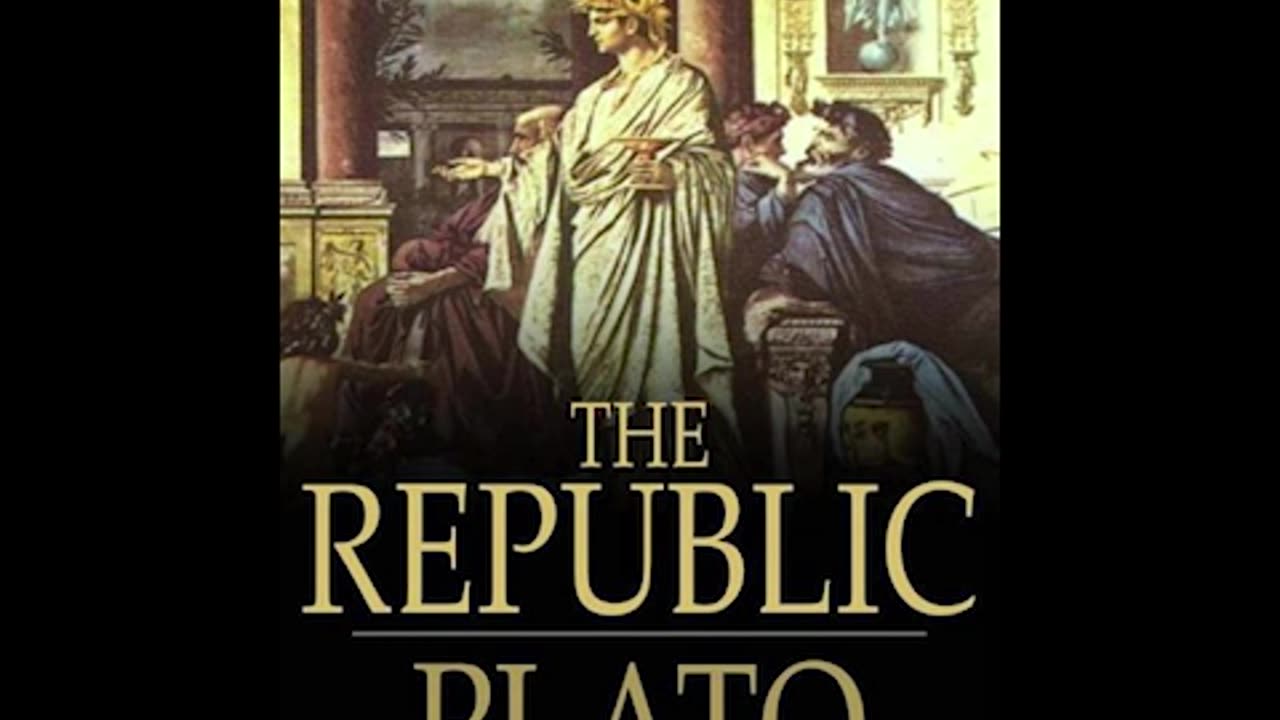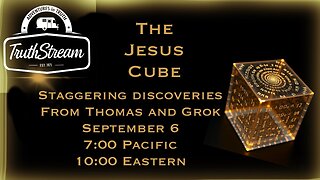Premium Only Content

The Republic by: Plato
The Republic is Plato’s most famous and influential work - a sweeping philosophical dialogue that explores the nature of justice, the structure of a just society, and the ideal form of government. Framed as a conversation led by Socrates, the dialogue unfolds across ten books and uses a mix of storytelling, allegory, and logical argument to build Plato’s vision of a well-ordered, virtuous civilization.
At the heart of the work is a challenge: What is justice, and why should we care about it? Socrates debates this question with his interlocutors, dismantling conventional views and introducing the concept of the Tripartite Soul (reason, spirit, and appetite), which mirrors his model for a well-balanced society: ruled by philosopher-kings, protected by guardians, and supported by the productive class.
The dialogue famously includes the Allegory of the Cave, a powerful metaphor for ignorance, enlightenment, and the philosopher’s role in society. Plato also introduces the Theory of Forms, proposing that the physical world is only a shadow of higher, eternal truths.
The Republic doesn’t just critique politics.. it reimagines education, ethics, art, the role of women, and the very purpose of human life. Though some of its ideas (like censorship or selective breeding) are controversial, its ambition, depth, and poetic force have kept it at the center of political and philosophical thought for over two millennia.
About the Author:
Plato (c. 427–347 BCE) was a foundational figure in Western philosophy and a student of Socrates. Born into an aristocratic Athenian family, he lived during the chaotic years following the Peloponnesian War and witnessed firsthand the political instability and moral decline of his city-state - an experience that deeply shaped his work.
Plato founded the Academy in Athens, one of the first institutions of higher learning in the Western world. Through his dialogues, he preserved and expanded the teachings of Socrates while also laying the groundwork for metaphysics, ethics, epistemology, and political theory. His writing style... dramatic, poetic, and rich in symbolism - allowed complex philosophical ideas to be expressed through dynamic character interactions rather than dry exposition.
Plato’s influence is immeasurable: he was the teacher of Aristotle, the intellectual ancestor of countless Western thinkers, and a cornerstone of esoteric and mystical traditions. Some later interpretations, particularly within Neoplatonism and Renaissance Hermeticism, viewed Plato not just as a philosopher, but as a conduit of divine wisdom - his “world of forms” echoing ancient mystical teachings about ideal archetypes and eternal truths.
Whether approached as a rational philosopher or a mystical sage, Plato remains one of the most powerful voices in the history of thought, challenging readers to question, reflect, and seek the higher good.
-
 1:57:40
1:57:40
Deus Meum Que Jus
28 days agoIrwin Schiffs Secrets of Living an Income Tax-Free Life Part 1
370 -
 1:38:47
1:38:47
Badlands Media
1 day agoDevolution Power Hour Ep. 387: Trump, Epstein, Durham Mysteries, and North Korea Ops
77.9K20 -
 1:05:23
1:05:23
Man in America
14 hours agoSoaring Gold Exposes the Imminent Crash of the Old System w/ John Perez
39.5K7 -
 2:42:40
2:42:40
TruthStream with Joe and Scott
14 hours agoTHOMAS AND GROK: AI, Bible decodes, The JESUS Cube live 9/6 #487
25K2 -
 2:34:46
2:34:46
BlackDiamondGunsandGear
9 hours agoGet Prepped / After Hours Armory / LIVE SHOW /
17K1 -
 2:01:39
2:01:39
Tundra Tactical
7 hours ago $6.38 earned🛑LIVE NOW!! This spits in the face of the Second Amendment.🛑
27.1K8 -
 2:34:46
2:34:46
DLDAfterDark
6 hours ago $1.64 earnedIt's SHTF! Do You Have What You Need?? Let's Review Items & Priorities
19.1K4 -
 28:58
28:58
Stephen Gardner
7 hours ago🚨Explosive allegations: Rosie O’Donnell connects Trump to Epstein scandal!?
33.9K64 -
 LIVE
LIVE
SavageJayGatsby
2 days agoSpicy Saturday | Let's Play: Grounded
526 watching -
 2:06:27
2:06:27
MattMorseTV
9 hours ago $50.92 earned🔴Vance just went SCORCHED EARTH.🔴
128K182